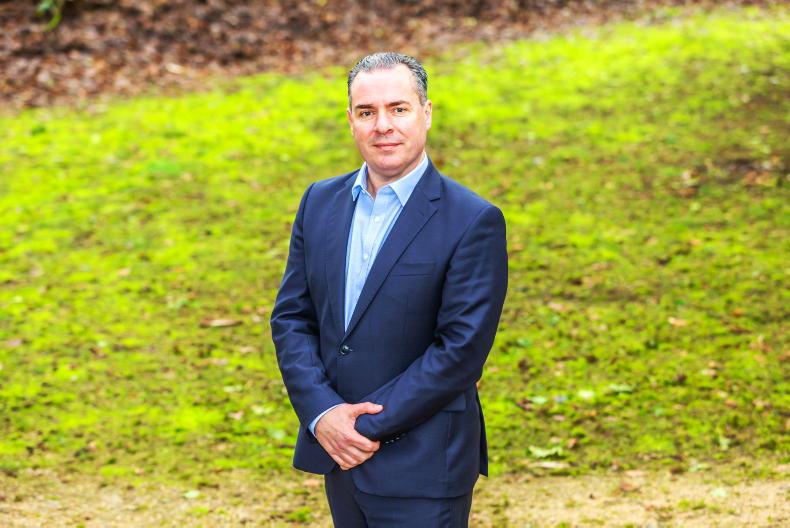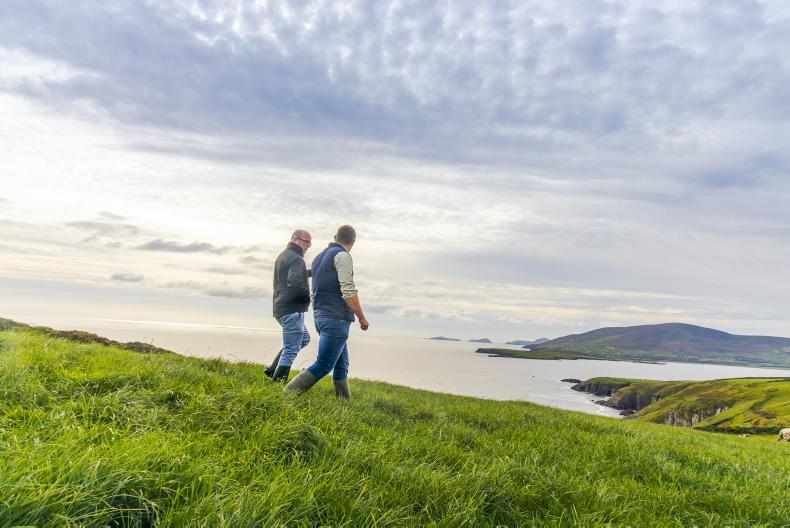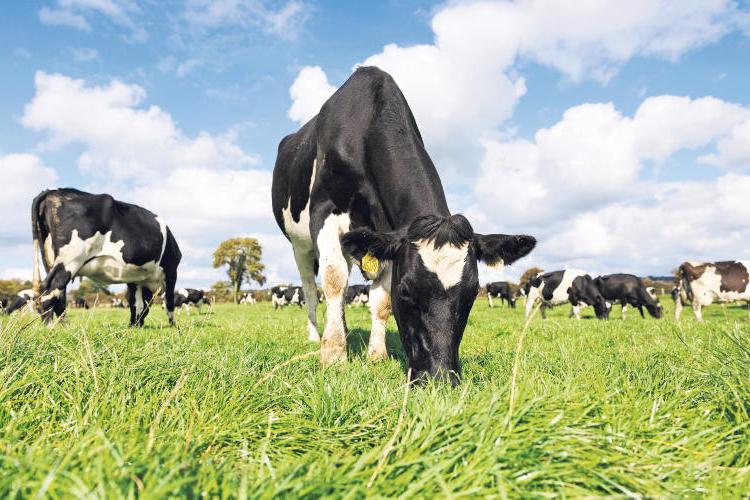Ireland’s dairy sector supports 55,000 jobs, making it the largest indigenous category in the Irish economy.
However, thave been job losses in recent months with two of the biggest milk processing companies laying off staff.
In 2024, Tirlán cut their headcount by 150 employees across the company. Last week, Dairygold announced a reduction of 70 positions over the next two years.
As a result, there is a level of uncertainty around employment in the dairy production sector. The unknown future of the nitrates derogation doesn’t help the matter as it is difficult to predict future milk production levels.
The CSO reports that the size of the national dairy herd declined by 1.2%, or 22,000 head, between June 2023 and June 2024.
At the Bord Bia markets seminar on 27 March, experts looked at the future trends of the industry and the demands for milk production.
In his presentation, Christophe Lafougere, CEO of international dairy analysts GIRA, outlined that over the next five years, they are predicting global dairy supply will increase by 0.8% per year.
Less milk will be produced across the EU and New Zealand, but there will be an increase in consumption demand for butter and cream, along with drinking milk. As a result, he is expecting that the dairy fat price should continue to remain high in the future.
Irish Country Living spoke with leading industry professionals to get their opinion on the outlook for employment in the sector.
David Kennedy, head of dairy, Bord Bia

David Kennedy, head of dairy, Bord Bia.
“Firstly, I empathise with those who have lost their roles in recent months. I do still believe that the future for employment in the dairy sector, whether on-farm or in further processing, is highly attractive. Dairy continues to outperform other on-farm enterprises in terms of profitability, and that should encourage more employment.
“In processing, we are seeing a re-calibration as the sector positions itself for an era of a moderate to stable milk pool after a decade of rapid growth. I do, however, foresee demand in the major processors for talent in terms of new product and market development as they look to move up the value chain with the milk they produce through innovation.”
Emma Walls, chief executive officer, National Dairy Council

Emma Walls, chief executive officer of National Dairy Council. \ Philip Doyle
“In the context of recent job losses in the dairy sector, I’m mindful always of the effect of redundancy on the individuals concerned and recognise the personal impact first and foremost.
“More broadly in terms of the industry, restructuring is a business reality and necessary adjustments that help to drive efficiencies and future-proof our co-operatives must be welcomed.
“It’s important to remember that dairy continues to support up to 55,000 jobs in this country, making a considerable contribution to our economy.
“At the National Dairy Council, we have good cause for optimism for the future of dairy – our research points to the constant recognition amongst the public of dairy as part of both a sustainable and a healthy diet; and trust in our dairy farmers. Of critical importance now is the retention of the derogation to help our farmers plan for the future, further develop their sustainability plans and invest in their farms with confidence.”
Jason Hawkins, chief executive officer, Carbery

Jason Hawkins, chief executive officer, Carbery.
“Let me first share my honest and long-held opinion that the dairy sector is an excellent sector to work in – full of opportunity, innovation, and close to the communities that we operate in. It directly supports farming families and businesses in rural areas.
"For anyone who wants to make an impact in their work, dairy is a great option. This is not to understate that the sector has faced challenges, like all sectors in recent years, with rising costs and uncertainty around supply.
“We have placed a lot of focus on hiring and retaining the best people in the company and creating an environment where they can do their best work.
"We will continue to have spaces for talented, dedicated people who want to work in a sector that has a positive impact everywhere from the incomes we provide in rural areas to the delicious food on customers’ tables around the world.”
Conor Mulvihill, director, Dairy Industry Ireland, Ibec

Conor Mulvihill, director of the Irish Dairy Industries Association (IDIA).
“I am hugely optimistic about our sector’s future despite recent uncertainties. Our industry has demonstrated remarkable resilience, navigating ‘black swan’ events such as the Brexit, COVID-19 pandemic, the Ukraine energy crisis. Each time we have come out stronger.
"Yes, 2023 and the first half of 2024 were difficult for farmer suppliers and workers alike, and recent right sizing by processors is evidence of that. But the last nine months have seen a renewed optimism sweep back into the industry with supply predicted to grow strongly in 2025.
“Looking ahead, there are exciting opportunities in specialised nutrition and dairy products off-grass as a whole food. Ireland is well-positioned to capitalise on what are still growing markets, leveraging our expertise in producing safe and nutritious food.
"Moreover, the dairy industry remains the best paying agri-food sector, providing substantial economic benefits and high-quality employment opportunities in rural areas.”
Ireland’s dairy sector supports 55,000 jobs, making it the largest indigenous category in the Irish economy.
However, thave been job losses in recent months with two of the biggest milk processing companies laying off staff.
In 2024, Tirlán cut their headcount by 150 employees across the company. Last week, Dairygold announced a reduction of 70 positions over the next two years.
As a result, there is a level of uncertainty around employment in the dairy production sector. The unknown future of the nitrates derogation doesn’t help the matter as it is difficult to predict future milk production levels.
The CSO reports that the size of the national dairy herd declined by 1.2%, or 22,000 head, between June 2023 and June 2024.
At the Bord Bia markets seminar on 27 March, experts looked at the future trends of the industry and the demands for milk production.
In his presentation, Christophe Lafougere, CEO of international dairy analysts GIRA, outlined that over the next five years, they are predicting global dairy supply will increase by 0.8% per year.
Less milk will be produced across the EU and New Zealand, but there will be an increase in consumption demand for butter and cream, along with drinking milk. As a result, he is expecting that the dairy fat price should continue to remain high in the future.
Irish Country Living spoke with leading industry professionals to get their opinion on the outlook for employment in the sector.
David Kennedy, head of dairy, Bord Bia

David Kennedy, head of dairy, Bord Bia.
“Firstly, I empathise with those who have lost their roles in recent months. I do still believe that the future for employment in the dairy sector, whether on-farm or in further processing, is highly attractive. Dairy continues to outperform other on-farm enterprises in terms of profitability, and that should encourage more employment.
“In processing, we are seeing a re-calibration as the sector positions itself for an era of a moderate to stable milk pool after a decade of rapid growth. I do, however, foresee demand in the major processors for talent in terms of new product and market development as they look to move up the value chain with the milk they produce through innovation.”
Emma Walls, chief executive officer, National Dairy Council

Emma Walls, chief executive officer of National Dairy Council. \ Philip Doyle
“In the context of recent job losses in the dairy sector, I’m mindful always of the effect of redundancy on the individuals concerned and recognise the personal impact first and foremost.
“More broadly in terms of the industry, restructuring is a business reality and necessary adjustments that help to drive efficiencies and future-proof our co-operatives must be welcomed.
“It’s important to remember that dairy continues to support up to 55,000 jobs in this country, making a considerable contribution to our economy.
“At the National Dairy Council, we have good cause for optimism for the future of dairy – our research points to the constant recognition amongst the public of dairy as part of both a sustainable and a healthy diet; and trust in our dairy farmers. Of critical importance now is the retention of the derogation to help our farmers plan for the future, further develop their sustainability plans and invest in their farms with confidence.”
Jason Hawkins, chief executive officer, Carbery

Jason Hawkins, chief executive officer, Carbery.
“Let me first share my honest and long-held opinion that the dairy sector is an excellent sector to work in – full of opportunity, innovation, and close to the communities that we operate in. It directly supports farming families and businesses in rural areas.
"For anyone who wants to make an impact in their work, dairy is a great option. This is not to understate that the sector has faced challenges, like all sectors in recent years, with rising costs and uncertainty around supply.
“We have placed a lot of focus on hiring and retaining the best people in the company and creating an environment where they can do their best work.
"We will continue to have spaces for talented, dedicated people who want to work in a sector that has a positive impact everywhere from the incomes we provide in rural areas to the delicious food on customers’ tables around the world.”
Conor Mulvihill, director, Dairy Industry Ireland, Ibec

Conor Mulvihill, director of the Irish Dairy Industries Association (IDIA).
“I am hugely optimistic about our sector’s future despite recent uncertainties. Our industry has demonstrated remarkable resilience, navigating ‘black swan’ events such as the Brexit, COVID-19 pandemic, the Ukraine energy crisis. Each time we have come out stronger.
"Yes, 2023 and the first half of 2024 were difficult for farmer suppliers and workers alike, and recent right sizing by processors is evidence of that. But the last nine months have seen a renewed optimism sweep back into the industry with supply predicted to grow strongly in 2025.
“Looking ahead, there are exciting opportunities in specialised nutrition and dairy products off-grass as a whole food. Ireland is well-positioned to capitalise on what are still growing markets, leveraging our expertise in producing safe and nutritious food.
"Moreover, the dairy industry remains the best paying agri-food sector, providing substantial economic benefits and high-quality employment opportunities in rural areas.”













SHARING OPTIONS